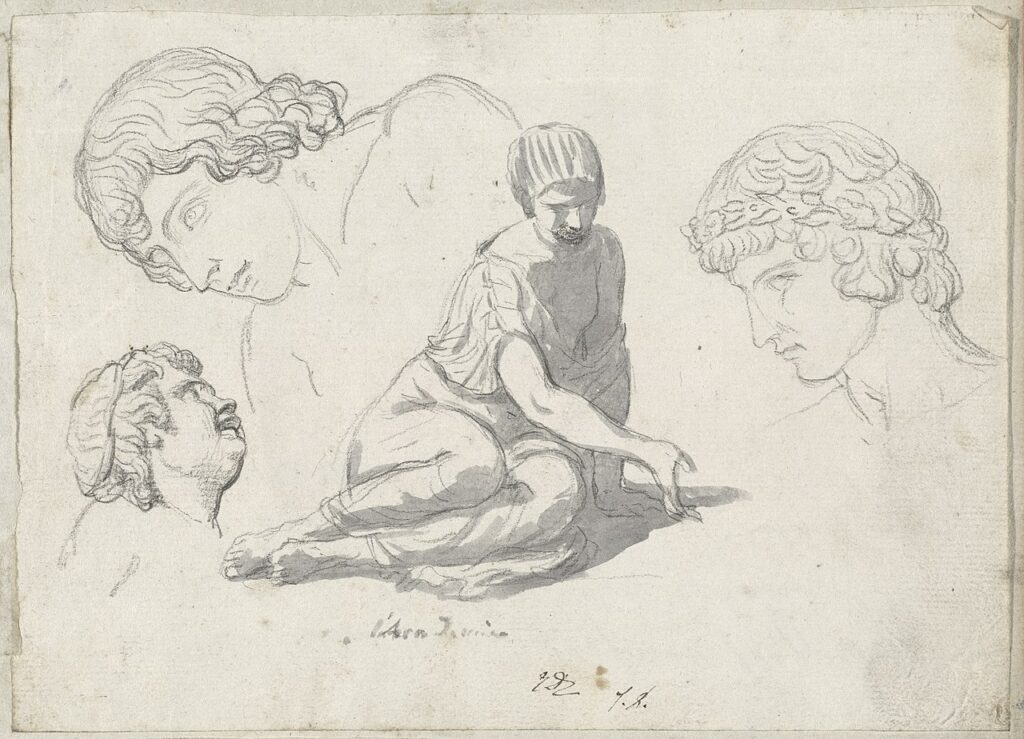Human beings seem to be hard-wired to look for patterns and meaning in the course of events. We also depend on metaphors to make sense of our experience (there were two of those in the previous sentence – ‘hard-wired’ from technology and ‘course’ from the sport of racing). Mythology and belief systems help structure such ways of making sense of the world.
Is the world (and our life) governed by Fate or Providence? Is it just a matter of luck? Metaphors help us answer the question. Is there a Wheel of Fortune that raises some today only for them to fall tomorrow? Is it all just the luck of the draw or the result of an unlucky throw of the dice? Mythology and religion offer different interpretations. Perhaps there are Norns who spin the rope of human experience and then suddenly take their scissors and cut it. Perhaps there is a President of the Immortals who is sporting with us (as he did with Hardy’s Tess of the d’Urbervilles). Perhaps there is special providence in the fall of a sparrow (as Hamlet put it when he realised he was about to die). Perhaps there is no meaning or cause at all.
☙
Descendant of:
MYTHOLOGY AND THE CLASSICAL WORLD ABSTRACT CONCEPTSTexts with this theme:
- Der Zufriedene, D 320 (Christian Ludwig Reissig)
- Zufriedenheit, D 362, D 501 (Matthias Claudius)
- Lebens-Melodien, D 395 (August Wilhelm Schlegel)
- An den Mond (Was schauest du so hell), D 468 (Ludwig Christoph Heinrich Hölty)
- Liedesend, D 473 (Johann Baptist Mayrhofer)
- Der Sänger am Felsen, D 482 (Caroline Pichler)
- Gesang der Geister über den Wassern, D 484, D 538, D 705, D 714 (Johann Wolfgang von Goethe)
- Der Schäfer und der Reiter, D 517 (Friedrich Heinrich de la Motte Fouqué)
- Blanka, D 631 (Karl Wilhelm Friedrich Schlegel)
- Die Sternennächte, D 670 (Johann Baptist Mayrhofer)
- Prometheus, D 674 (Johann Wolfgang von Goethe)
- Der Unglückliche / Die Nacht, D 713, D deest (Caroline Pichler)
- Sei mir gegrüßt, D 741 (Friedrich Rückert)
- Der Tanz, D 826 (Columban Schnitzer)
- Lied der Anne Lyle, D 830 (Wilhelm Adolf Lindau, Andrew MacDonald, and Walter Scott)
- Totengräbers Heimwehe, D 842 (Jacob Nicolaus Craigher de Jachelutta)
- Wiedersehn, D 855 (August Wilhelm Schlegel)
- Mignon (Heiß mich nicht reden), D 726, D 877/2 (Johann Wolfgang von Goethe)
- Sehnsucht (Die Scheibe friert), D 879 (Johann Gabriel Seidl)
- Sie in jedem Liede, D 896A (Carl Gottfried von Leitner)


